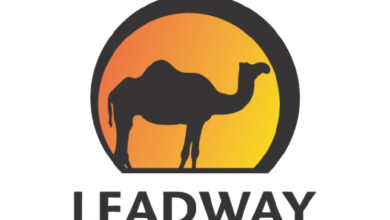Algeria:AIO Calls For Support For Agricultural Insurance In Africa

By Osama Noor
There is a huge potential to grow agricultural insurance business on the African continent but there is a need for further support from governments and insurers to raise their level of performance to cater to the needs of farmers, said speakers at the 49th Conference and General Assembly of the African Insurance Organisation (AIO).
The agricultural insurance market in Africa remains insufficiently developed despite the great potential that exists, which requires greater support from the continent’s governments, said Dr Ben Kajwang, outgoing president of the AIO in his opening remarks at the organisation’s 49th General Assembly in Algiers on 29 May 2023.
Organised by the Algerian Union of Insurance and Reinsurance Companies (UAR), the event that was held from 27 to 31 May 2023 had the theme, “Contribution of insurance to food security challenges in Africa”.
Dr Kajwang urged governments to develop support for agricultural insurance premiums as well as to improve the financial education of farmers.
He pointed out that the agricultural insurance market remains underdeveloped in Africa, with weak coverage and limited insurance products. It is a market in which the majority of agricultural insurance services are provided in only some African countries. He said that only 1% of small agricultural investors today have insurance coverage at a time when the economic climate is experiencing difficulties with rising inflation, disruptions to the global supply chain, and food insecurity.
He called for the development of the agricultural insurance industry at the continental level, noting that Africa has 65% of the world’s unexploited arable land and abundant water, as well as a large solar energy potential of 300 days a year.
He added that more than 60% of Africa’s population work in agriculture, and about 23% of the continent’s GDP comes from agriculture, stressing that Africa can produce two to three times more grains and seeds with more support than at present.
Dr Kajwang named three major challenges facing Africa, which are climatic shocks, price volatility in global markets, and malnutrition.
Mr Youcef Benmicia, UAR president, said in his speech that “efforts of actors in the African insurance sector, including experts, governments and organisations, are required to move towards the establishment of insurance systems that are able to deal with natural and climatic risks”. He also stressed the need to develop and provide insurance products that meet the needs of the population, especially farmers.
Mr Benmicia added that while the insurance premiums in Africa represent only around 1% of the global insurance industry’s turnover, the market share of the agricultural insurance branch does not exceed 1.5% at the continental level. “This situation is the result of several factors—including economic difficulties in many African countries as well as cultural factors—which require mechanisms to be developed to reverse this trend in parallel with raising awareness and enhancing communications with economic sectors.”
He urged insurers to develop creative solutions that would help insure agricultural businesses more effectively, including using parametric insurance and microinsurance—which will allow expanding insurance coverage —and strengthening the confidence of farmers in the insurance industry. “All this will support the insurance industry’s attempts to increase penetration rates,” he said.
Challenges
Inaugurating the Conference, Algeria’s Prime Minister Ayman Ben Abdel-Rahman said that challenges lie mainly in facing the impact of climate change on food security on the African continent, the sustainability of effective public policies, and the modernisation of agricultural activities in order to preserve income for farmers in parallel with supporting the purchasing power of the citizen.
He noted that there is a need to forge a vision for the future that focuses on the improvement of the legal framework and methods of managing the insurance sector to expand insurance coverage for small farmers and micro-enterprises as well as investors in the agricultural field. He said that insurers can accomplish these goals by finding simple mechanisms and effective means of communication, through digitisation and innovation in overcoming many obstacles, especially procedural ones, and enhancing their performance.
Improving the attractiveness of the Algerian insurance sector
As for the Algerian insurance industry, there remains huge room for progress, said Mr Ben Abdel-Rahman. He referred to several reforms that the insurance sector in Algeria had witnessed, starting with the opening up of the market in 1995 which led to increasing the number of insurers from six state-owned institutions to 25 at present, including private operators with foreign partners. In 2006, further regulatory reforms were introduced, which boosted the size of the insurance market by three times in the past 15 years, reaching around $1.1bn in 2022.
He added that the public authorities are currently in the process of finalising a new insurance Bill to be published before the end of the year to make the insurance sector in Algeria more attractive.
He added that Algeria is looking forward to improving the performance of the market through a number of measures including opening up the sector under the framework of the African Continental Free Trade Area, strengthening cooperation and exchanging information related to managing risks, especially climatic risks, and promoting the comprehensiveness of the African market for reinsurance.
The Prime Minister also said that the government is keen on improving the governance of insurance and reinsurance companies, modernising the insurance market by accelerating the pace of digitisation, providing digital platforms for underwriting and compensation, diversifying insurance products to promote financial inclusion, preparing the sector to handle new risks, and improving the quality of services provided to the insured.
Around 1,800 delegates attended the AIO annual conference this year.
Culled from Middle East Insurance Review





